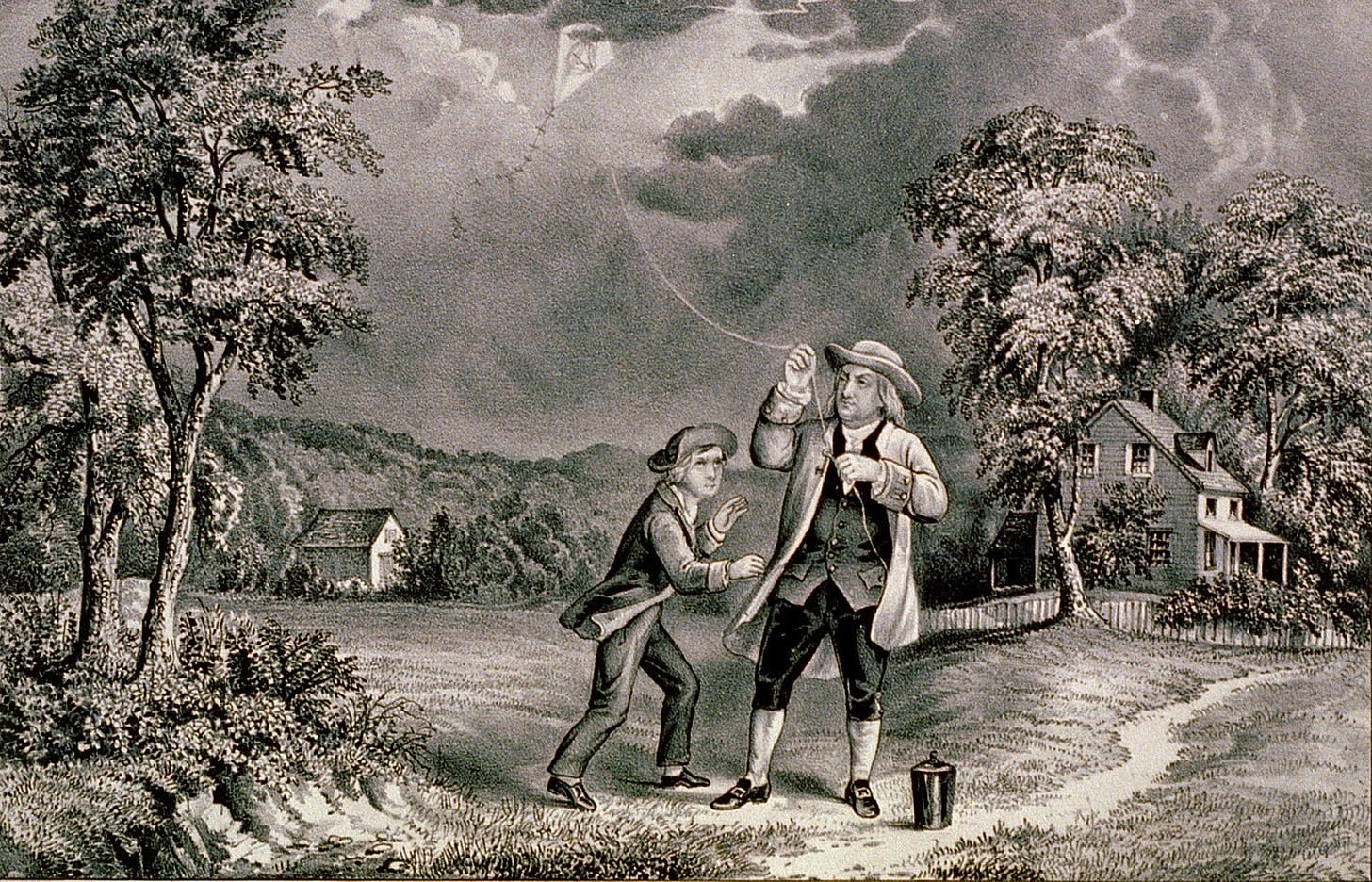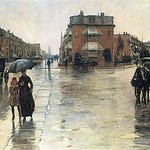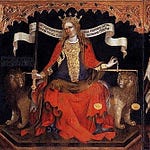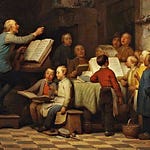Once Dr. Franklin nearly electrocuted himself with a kite, a Leyden jar, a key, and a thunderstorm, the materialists of the western world thought they’d drawn near to the secret of our Word of the Week, life. Now, by life they didn’t mean what Jesus meant by it, when he said that he came to bring life, and that in abundance. God is life, and maybe even now we enjoy a foretaste of it, in that expansiveness of the spirit that we feel in the presence of great beauty, or that racing of the heart when we are overwhelmed with joy. To move about from here to there is one thing, and usually it’s not even from here to there, but from, say, Pavia to Pavia, or Leeds to Leeds, or Cleveland to Cleveland. But to move from the twilight before the dawn into the glory of the full day — from mist and doubt to clarity and confidence — from seeing as in a glass darkly to seeing face to face — that is to go from being alive for a while in the flesh to life itself, like an ever-flowing fountain
.A jolt of electricity in a cadaver — and that was supposed to do the trick, if you take your lead from Mary Shelley’s Frankenstein. I don’t think that Miss Shelley believed it, really. Of course we know now that each tiny cell of ours is a staggeringly complex array of living tissue and organelles of a wide variety, each organelle distinct and specific and all of them interrelated with one another, not just a bunch of indiscriminate jelly to give a kick to, like a juke box on the fritz.
I think it’s good for kids to be outdoors as much as possible, and here’s one reason among a thousand. They will be surrounded with living things, each of them a mystery even to the brightest of our scientists, and in fact, the more you know about them, the more mysterious they appear. What are those little red buds on the crust of the snow? How can the cardinals make it through the winter? Why does the sap begin to flow in the veins of the quince bush in the early spring — a little later to bloom than the forsythia, and a little earlier than the azalea? “Consider the lilies of the field, how they grow,” said Jesus, who also attended to the sparrows and the ravens, the sheep in the green pastures, the fig tree, the grapevine, the yeast a woman kneads into her dough, the fish in the sea, and the fresh waters of the Jordan River, which make Israel possible. A mere drop of water is a teeming world of life, yet it is as nothing, and all the works of man are as nothing, compared with the new life of one redeemed human soul.
Shakespeare’s worst villains grow weary of life. Macbeth, hearing of his wife’s death, says that “Life’s but a walking shadow.” It is “a tale told by an idiot, full of sound and fury, / Signifying nothing.” But the Bard himself is always on the side of life, and not just taking some breath for another day or two. “‘Tis time; descend; be stone no more,” says Paulina, as an apparent statue of Queen Hermione, believed to have died sixteen years before, begins to stir. “Bequeath to death your numbness, for from him / Dear life redeems you.” That scene at the end of The Winter’s Tale is the most stunning theatrical coup I know of. Yet the coup is not just that a woman we believe to have died — in fact, we saw it on stage, and it was so reported, as was her burial — has come to life. For her husband, the once irrationally jealous King Leontes, the man who caused her death in the first place, has been repenting of his sin for all that time, and when we meet him after the sixteen years, he is chastened, no longer dead to truth, beauty, and goodness. He is alive, and ready for that life in abundance, and when Hermione descends and takes her husband by the hand, we have to weep or laugh or gaze in astonishment. And Shakespeare is canny enough to whisk everybody off the stage, ending the play before we know what hit us. Life has done it!
Our word life has obvious cousins in the other Germanic languages: German Leben, Swedish liv, and so on. In English, we say that we live in Tunbridge Wells or Council Bluffs, but you wouldn’t say that in Italian or even German: you’d use a different word, one that has to do with dwelling or being somewhere habitually. Yet the English word life did in fact have the underlying sense of sticking around, quite literally; staying there. So its more distant cousins in other Indo-European languages have to do with clinging or being sticky: like Greek lipos, meaning fat. When Beowulf slays the dragon in the combat that costs him his life, the only thane to stick by his side is Wiglaf, meaning, roughly, War-survivor, someone who’s still sticking around after the battle. Wiglaf tells us that the way of life the Geats enjoyed under their king will be no more. That’s all right, though, because, though Wiglaf doesn’t know it, his people are about to hear the good news of true life, the life that does not end with a losing battle, and that finds its dwelling place in the presence of God. Then let us all sing the toast — To Life!
Word & Song by Anthony Esolen is a reader-supported online magazine devoted to reclaiming the good, the beautiful, and the true. We publish six essays each week, on words, classic hymn, poems, films, and popular songs, as well a weekly podcast, alternately Poetry Aloud or Anthony Esolen Speaks. To support this project, please join us as a free or paid subscriber.
Listen to this episode with a 7-day free trial
Subscribe to Word & Song by Anthony Esolen to listen to this post and get 7 days of free access to the full post archives.















